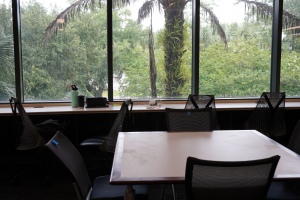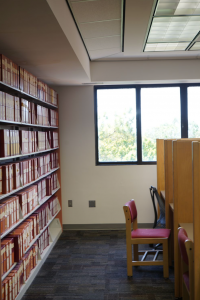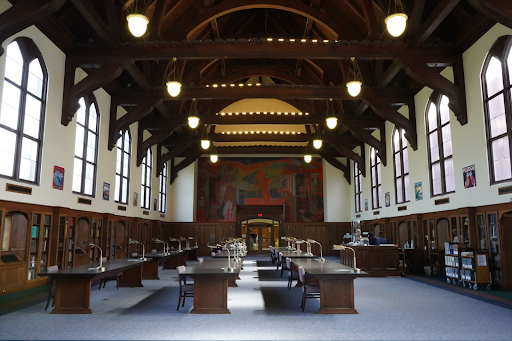Introduction to the Guide
2 Introduction to the Libraries
Welcome to the Libraries! The George A. Smathers Libraries are more than just a study space. They’re also UF students’ best resource when it comes to research and a free supplier of tech for your academic, organizational, and personal needs. There are six libraries available for undergraduate use: Library West for the humanities and social sciences, Marston Science Library for STEM fields, the Health Sciences Center Libraries (HSCL), the Education Library, the Architecture and Fine Arts Library (AFA), and Smathers Library (also known as Library East). There is also a seventh library at UF, the Lawton Chiles Legal Information Center, but it is separate from the George A. Smathers Libraries and it’s used primarily by UF Law students.

The six George A. Smathers Libraries are open to all UF undergraduates regardless of your major or area of study. The subject-area specialization just exists to best organize the resources, collections, and materials. Each library has unique study spaces, materials, and collections that are paid for by our tuition. That means that everything the libraries have to offer comes at no extra cost for enrolled undergraduates. The libraries are available to host or co-sponsor your student org’s events, put together exhibits, archive UF history, and more. The libraries are also incredibly useful research resources.
Library workers are here to help you with all your library, research, and information needs.

Doing research as an undergraduate can be confusing and intimidating. Luckily, the librarians are here to help you every step of the way.
Whether you’re writing a research paper for a class or doing a research project for an internship, you can count on the libraries to connect you to resources and help guide you through the process. Through the George A. Smathers Libraries, we have access to a myriad of academic databases that can connect you with scholarly sources for anything you’re studying. The in-person collections are also available for your research or personal interest.
Furthermore, the librarians that work at each library are paid to help undergraduates do research. Whether you’re unsure about how to do a works cited list, don’t know how to develop a research question or keywords, or just aren’t sure how to navigate the overwhelming amount of information that’s out there — the librarians are here to help.
Every major at UF has a subject librarian whose expertise is within a specific field. Reaching out to your subject librarian is a step that you can take at any point in the research process or during your academic career when you are stuck or unsure. More information about finding your subject librarian and the online resources the libraries provide can be found in the next section.
While creating this guide and speaking to librarians from across the George A. Smathers Libraries, the same piece of advice for undergraduates came up again and again: Don’t wait! Too often, students don’t learn about the ways librarians and library staff can help until they are upperclassmen. The UF librarians want us to know that they are there to help with any type of research, during any part of your time at UF, from the beginning of the process to the end.

The general collection of a library refers to items available on the shelves to check out and take home. At UF, most general collection items can be checked out by undergraduate students for eight weeks.
An exhibit is a public display of objects with accompanying cultural or educational information, found commonly in museums and libraries. In the Libraries at UF, exhibits highlight items found in our collections and tell a story or interpretation of their significance.
Scholarly databases are used to search for and locate specific journal articles, book chapters, newspaper articles, and more. There are many databases available through the Libraries, and many of them are especially tailored to different majors. Unlike Google or Google Scholar, databases have powerful filtering tools to narrow down your search.
Scholarly sources are written by experts in their research field for an audience of fellow researchers. These most commonly include journal articles and academic books. Oftentimes, professors are specifically referring to “peer-reviewed sources” when they mention “scholarly sources.”
A subject librarian (or "subject/area specialist") is a librarian who has expertise in a particular subject, discipline, or topic. Every major at UF has a subject librarian who is uniquely qualified to help them with their research.

